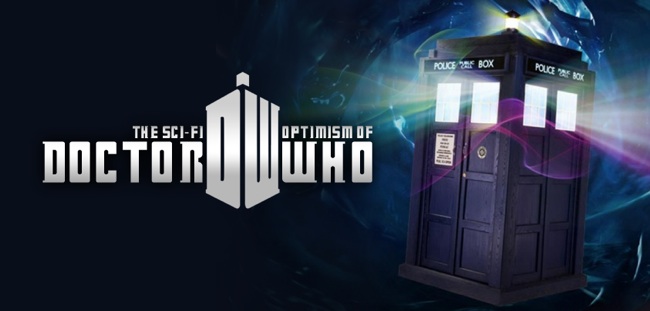The oldest ongoing sci-fi show, “Doctor Who,” made a splash with the first full-length episode “The Woman Who Fell to Earth” on Oct. 7. The season 11 premiere was the first to star British actress Jodie Whittaker as the newest incarnation of the Doctor. A Time Lord from the planet Gallifrey, propelled through time and space in their trusty TARDIS and blessed with two hearts and an extraordinary sense of compassion, the Doctor as a character has resonated with audiences since the BBC show’s first series run in 1963. Using a convenient plot device which allows the leading man (or woman) to be replaced every few seasons, the Doctor regenerates (think a lizard’s tail) into a completely new person, with a few added quirks or mannerisms, but always with the same central message; to value life in all forms and treat others with kindness.
Picking up and focusing instead on brand-new character, Ryan Sinclair (Tosin Cole), who suffers from dyspraxia, a neurological condition that can make day-to-day motor functions difficult, the first few minutes of the season 11 premiere might leave some wondering, “What happened to the Doctor?” The episode opens at a slow pace with Ryan speaking to viewers from a home-made YouTube video, but the episode builds dramatically until the ominous presence of the first alien is made clear. When the Doctor does finally make an appearance, she literally smashes through a ceiling, falling through the roof of a train. Appearing just in the nick of time, she recovers quickly and doesn’t hesitate to spring into action, even though she seems a little muddled about some of the details, including her own identity as a woman. Nevertheless, she doesn’t allow her confusion to deter her from apprehending the new alien threat around town, the English city of Sheffield, accompanied by a new and inclusive cast of companions who she meets on the train, including Yasmin Khan (Mandip Gill), Grant O’Brien (Bradley Walsh) and the previously mentioned Ryan Sinclair. The episode hums along relatively well, with revelations being made about the identity of the aliens along the way. The big question, “Who are the aliens?”, kept me wondering the entire length of the episode and wasn’t revealed until the brilliant Doctor deduces it for herself. This climactic scene of the episode features the Doctor making an impassioned speech about the nature of change in an attempt to implore the bad guy to do good, saying, “We’re all capable of the most incredible change. We can evolve while staying true to who we are, we can honor who we’ve been and choose who we want to be.” While speaking volumes about two of the main tenets of the show, showing empathy towards others and trying to solve problems with words rather than violence, it also serves as a direct appeal to the viewer to embrace the new Doctor, the possibility of change and to take a chance.
Other changes to the show include new showrunner Chris Chibnall, who received critical acclaim for his role as writer of dark crime drama “Broadchurch.” A show on which Whittaker appeared. Chibnall has also stated that one of his goals as the new head writer of “Doctor Who” would be to make the show more accessible to newcomers, doing away with the complex storylines that were heavily favored by his predecessor, Steven Moffat. Chibnall states in an interview with collider.com, “…we had to make sure that it’s really open to new audiences while also serving fans…It’s a relationship between people, and how they develop in response to the adventures they’re having.” Hopefully, Chibnall will deliver on his promise to focus more on the interpersonal relationships and follow up on an already spectacular season premiere.
Overall, I was happy with the first episode. Whittaker, despite being faced with the pressure of establishing a new take on the decades-old character, delivers a wholly fresh, original and utterly enthusiastic performance and her delightful energy is palpable even on screen. Cole’s acting was slightly wooden at times, but admittedly, this is characteristic of the frustrated, stoic teenager his role calls for at times. Regardless, Cole’s character, Ryan, played an excellent counter act to Yasmin, an ambitious police officer frustrated with her tedious job negotiating parking disputes. Similarly to Whittaker, Gill plays Yasmin as a sharp, quick-witted and constantly questioning woman, though admittedly not as whimsical as the Doctor.
Another interesting dynamic exists between Ryan and his grandmother’s, Grace (Sharon D. Clarke), new husband, Grant O’Brien, a slightly curmudgeonly retired bus driver who tries his best to support Ryan alongside his grandmother. Actually, it almost appears as if the showrunners were attempting to tick all boxes to create the most inclusive cast. As a team of working-class, disabled, people of color led by a headstrong woman from outer space, it doesn’t get any more diverse than this.To be clear, I am fully supportive, and actually really enthusiastic about this change. It looks like the BBC’s gamble with a new, boundary-shattering lineup has payed off.
However, the introduction of the first female version of the now-iconic character caused somewhat of a backlash among some of its more traditional fans. The majority of the complaints centered around the new gender identity of the intergalactic space-traveller, which ranged from expressions of how young boys wouldn’t be able to relate as easily to this iteration of the character, to others accusing political correctness of having gone too far. Whatever the complaints, Whittaker’s initial performance of the Doctor has already put most of those concerns to rest. Her portrayal is unique and tenacious, while delivering a performance that captivate the old fans as much as the new.
If you appreciate sci-fi, new, ambitious characters and the defiance of traditional gender roles, be sure to check out the new season of “Doctor Who” at 8 p.m. Sundays on BBC America.


Leave a Reply